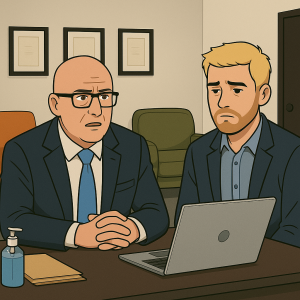1. Victim and Witness Rights
- South Carolina Attorney General – Victim Services
Provides guidance on crime victim rights, assistance navigating the legal system, and access to restitution and safety resources. - SC Department of Public Safety – Victim Services
Offers support for victims of traffic-related and criminal incidents, including compensation and crisis referrals.
2. Free and Low-Cost Legal Aid Programs
- SC Law Help
Legal self-help portal offering forms, guides, and free legal aid referrals for harassment, abuse, and civil protection cases. - South Carolina Legal Services
Provides free legal representation in civil matters including stalking, cyber abuse, and defamation cases for qualifying residents.
3. Relevant Laws
- Stalking: S.C. Code § 16-3-1700
What it means: Repeated behavior that causes fear of death, injury, or continued harassment. Includes following, surveillance, or repeated electronic contact. - Harassment: S.C. Code § 16-3-1700(A) and (B)
What it means: Unwanted verbal, written, or physical conduct that causes mental or emotional distress. Covers first and second-degree harassment offenses, including online conduct. - Bullying: No adult criminal statute. Covered under S.C. Code § 59-63-120 (Safe School Climate Act)
What it means: Requires all public schools to adopt and enforce anti-bullying and cyberbullying policies with clear reporting and disciplinary procedures. - Defamation: Civil tort, not criminal. Based on South Carolina case law.
What it means: Individuals may sue for libel or slander if false statements result in reputational damage. Defamation is not a criminal offense in South Carolina.
4. Reporting and Hotlines
- Call 911 for emergencies or when you feel in danger.
- Report non-emergency incidents to your local law enforcement agency or magistrate court.
- South Carolina Coalition Against Domestic Violence and Sexual Assault (SCCADVASA)
Connects survivors to shelters, legal advocates, and trauma-informed resources across the state. - Statewide Domestic Violence Hotline: 1-800-799-7233
24/7 confidential support for individuals experiencing abuse, stalking, or harassment.
5. Support Organizations
- SCCADVASA – SC Coalition Against Domestic Violence and Sexual Assault
Provides advocacy, prevention programs, and direct support services through partner organizations statewide. - Sistercare
Offers emergency shelter, legal advocacy, and counseling for domestic violence survivors in the Midlands region.
6. Civil Remedies and Protection Orders
South Carolina residents can file for an Order of Protection (domestic relationships) or a Restraining Order (non-domestic situations) to prevent stalking, harassment, or threats. Legal aid providers and court staff can assist with filing and court preparation.
Important Note on Jurisdiction: If the individual you are seeking a restraining order against lives in a different state, your local court may not have jurisdiction to enforce that order. In most cases, you must file for protection in the state where that individual resides or where the conduct occurred. This applies even in situations involving online harassment, defamation, or stalking. Contact legal aid services in both your state and the other person’s state for guidance.
7. Youth and School Resources
- SC Department of Education – Bullying Prevention
Provides school districts with guidance, reporting tools, and training on bullying and cyberbullying prevention policies.
8. Court Forms and Filing Help
- South Carolina Courts – Court Forms
Offers downloadable forms and instructions for filing civil protection and harassment restraining orders.
9. Online Safety and Privacy Tools
- NNEDV Tech Safety Toolkit
A digital safety guide for survivors facing cyberstalking, impersonation, or technology-based abuse.
Disclaimer: This information is provided for educational purposes only and does not constitute legal advice.




